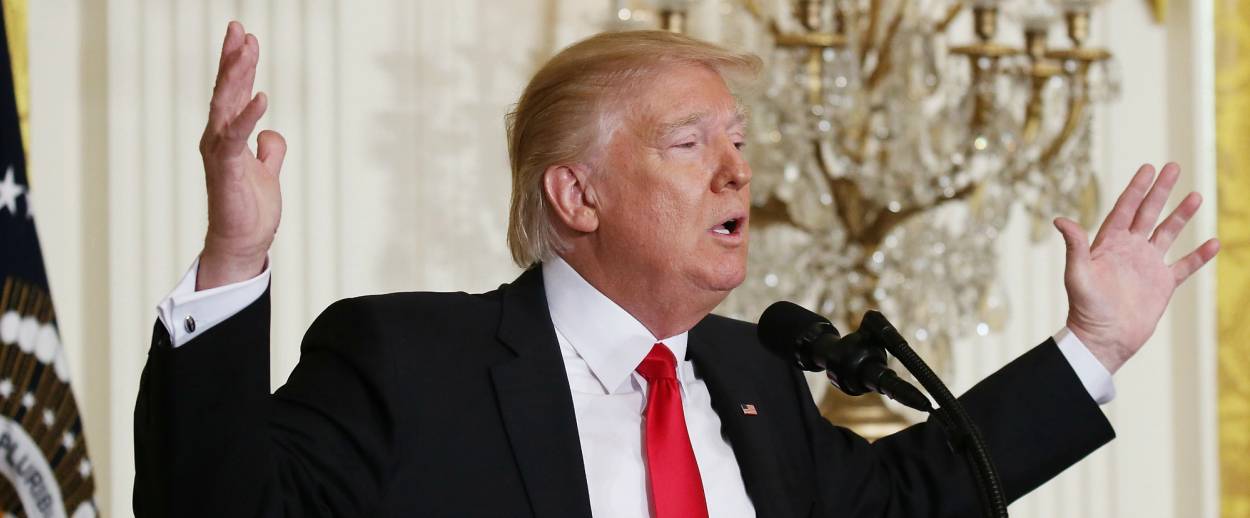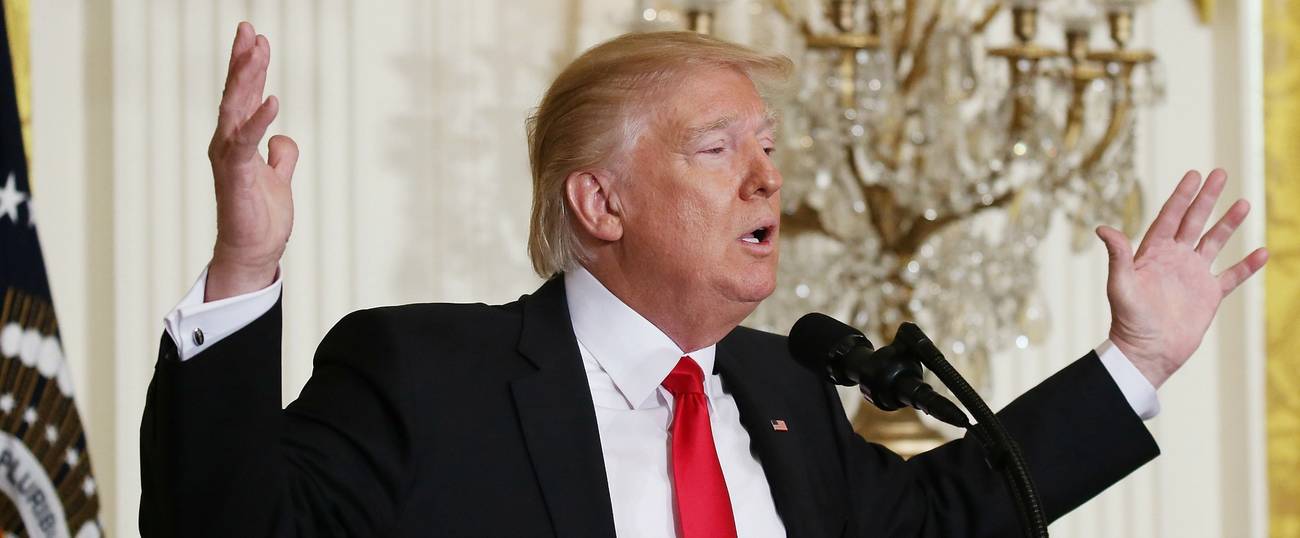Trump Fumbles Yet Another Opportunity to Address Country’s Rising Anti-Semitism
Wanting an ‘easy question,’ President Trump told a Jewish reporter to ‘sit down’ after he mentioned concerns over the ‘uptick’ in anti-Jewish incidents in the U.S.




At the tail end of his 96-minute press conference earlier today, an agitated Donald Trump, visibly rattled after a bombardment of tough Russia and national security-related inquiries, craved the solace of an easy question from an admiring questioner. “I want to find a friendly reporter,” the president said at the one hour-and-18 minute mark, in possible open mockery of the forest of raised hands in front of him. He happened on Jake Turx, a reporter for Ami magazine, a Brooklyn-based Jewish publication. Then, this:
Turx wanted to ask about the worsening atmosphere of anti-Semitism in the U.S., and the White House’s possible response to the reported 48 bomb threats issued against American Jewish institutions in recent months. Turx opened by saying that he did not believe that any rise in anti-Semitism was personally attributable to the president or his advisors: “Despite what some of my colleagues have been reporting, I haven’t seen anybody in my community accuse either yourself or anyone on your staff of being anti-Semitic,” Turx began, noting that the president had “Jewish grandchildren.”
“Thank you,” Trump replied.
“However,” Turx continued, “what we are concerned about, and what we haven’t really heard you address is the uptick an anti-Semitism.” Neither had they seen the White House articulate a response to this apparently worsening problem, Turx said.
Trump interpreted Turx’s question as a personal attack. “You see, he said he was going to ask a simple, easy question. And…it’s not a fair question. So here’s the story, folks. Number one, I am the least anti-Semitic person you have seen in your entire life. Number two, racist. The least racist.”
Turx attempted to speak up and explain his question a second time. “Quiet, quiet, quiet!” the president snapped. “He lied about—he said he was going to get up and ask a very straight, simple question.” Worse than asking just a non-simple question, Trump said, Turx had asked “a very insulting question,” one that Trump refused to dignify with an answer.
This is the second time in two days that the president has treated the entire topic of anti-Semitism with scornful defensiveness. Yesterday, during a press conference with vising Israeli Prime Minister Benjamin Netanyahu, Trump used a question about anti-Semitism as an opportunity to talk about his electoral college win, and little else. In today’s presser, Trump had the easy option of offering even perfunctory words of sympathy or reassurance to a nervous American minority community. Even if he misheard of misunderstood Turx’s caveat at the beginning of his question, a basic acknowledgement of the core issue—namely, bigoted, seemingly nation-wide threats aimed at terrifying one specific subset of the president’s constituents—could have accompanied Trump’s reflexive sense of insult. The president failed to clear even this very low bar.
But did Trump really misunderstand the question? The president must have actually heard and comprehended the first half of Turx’s question, since he explicitly thanked him for it. It’s possible that Trump interpreted the second half of the question as a grave personal accusation even in light of Turx’s caveat, and that in the president’s mind, the mere suggestion of his administration’s inadequacy in responding to anti-Semitism was an unacceptable assault on his character.
In the course of a 30-second exchange, Trump displayed many of his most worrying characteristics—his short temper, his bottomless appetite for approval, and his tendency to conceive of reasonable policy criticism in visceral, deeply personalized terms. For the second time in as many days, Trump was given a chance to talk about anti-Semitism, but decided to talk about himself instead.
Previous: What’s Mine Is Mine
Armin Rosen is a staff writer for Tablet Magazine.